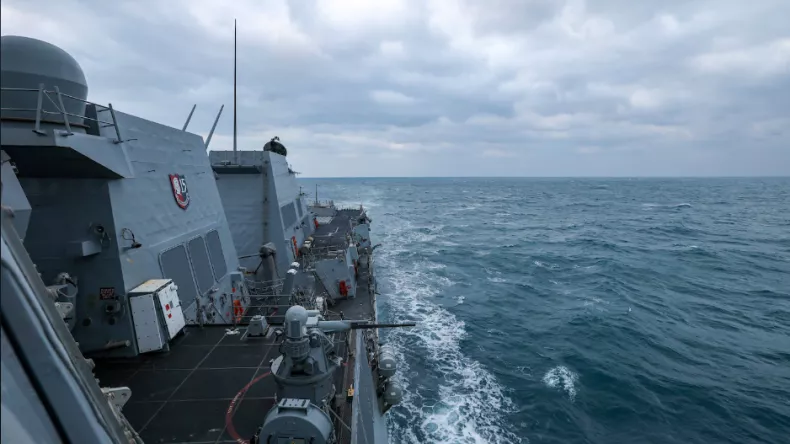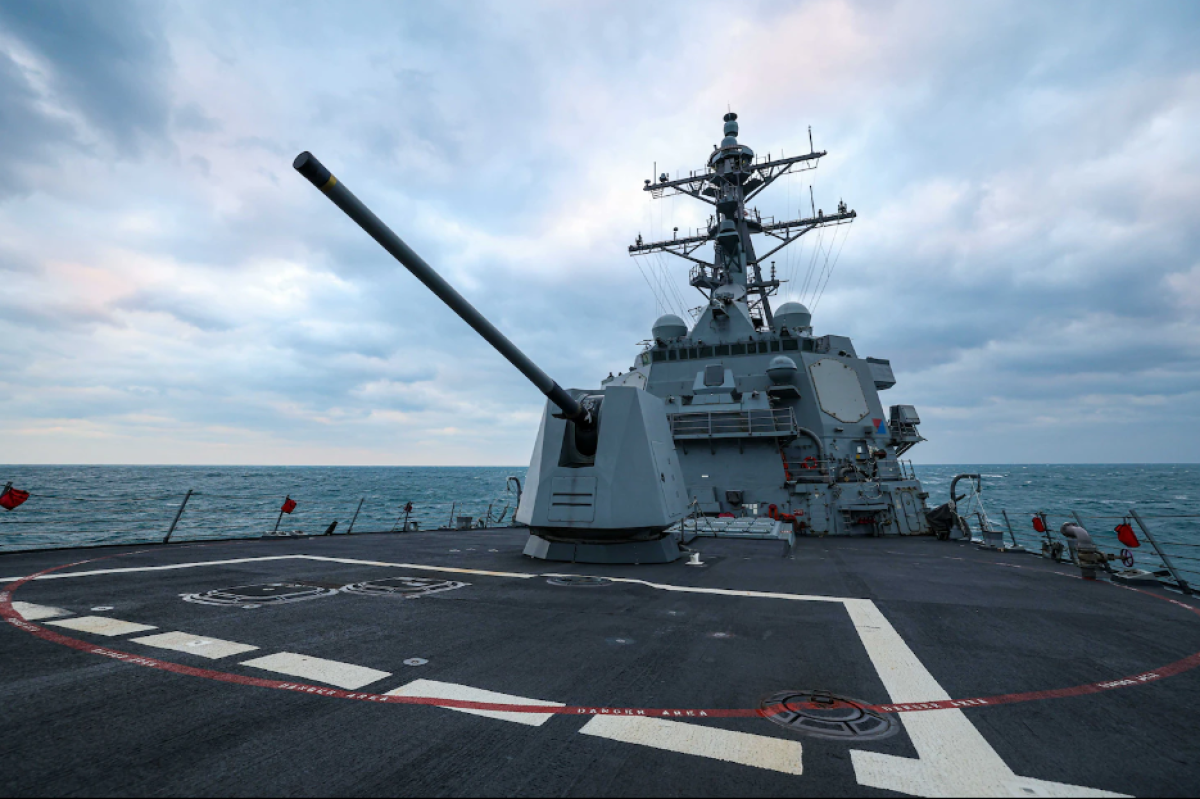Sabre-Rattling Again
"The United States side should stop abusing international law, cease all dangerous and provocative behaviour, and strictly restrain the activities of front-line troops, which is the fundamental way to avoid accidents at sea and in the air.""[U.S. warplane and warship activity] on China's doorstep [is the root cause of the problems between the two military powers]."Beijing Defence Ministry spokesperson Wu Qian"No member of the international community should be intimidated or coerced into giving up their rights and freedoms.""The United states military flies, sails and operates anywhere international law allows."U.S. Navy 7th Fleet news release
 | |
| The USS John Finn (DDG 113), which transited the Taiwan Strait on January 24 in what the U.S. calls a "freedom of navigation" operation. China's military responded by condemning the U.S.'s "provocative acts." |
Once again China laid accusations against the United States of having violated international law through military manoeuvres in the western Pacific. The complaint arrived a day following the politically sensitive Taiwan Strait hosting an American naval destroyer sailing through. The USS John Finn sailed through the 160-kilometre-wide waterway separating China from Taiwan. The autonomous island that considers itself a sovereign entity defying Beijing's declaration that it is part of China.
In November of 2023 at a meeting that took place between Presidents Joe Biden and Xi Jinping in California, both agreed -- after a prolonged period of increasingly chilly diplomacy and sporadic accusations of imperilling peace through rhetorical challenges amplified by war games seen on each side as intimidation -- to warm the diplomatic climate by resuming military contacts.
The purpose of which was to manage the potential for an unintentional collision or other incident between the two that could occur while both sides patrol the waters in regional hotspots, including he Taiwan Strait and the South China Sea, which Beijing claims as its sole ownership, clashing with its neighbours -- resentful of their own traditional claims of extended sovereignty from their coastlines hijacked by China.
The United States is intent on demonstrating that the areas of the high seas should remain navigable as international waterways, leading to a clash of interests between the two. The United States sees its actions being in line with international laws guaranteeing freedom of navigation. Whereas China's rising prominence and power allows it to project military might into the western Pacific bringing it into conflict with the United States, whose military power in the region has long been dominant.
U.S. military activity is meant to deter China from launching any kind of attack on Taiwan, much less using its strength to enforce its territorial claims in its disputes with smaller neighbours such as the Philippines. Last year, as disputes over shoals and other outcroppings in the South China Sea flared, Chinese and Philippine ships clashed. China lays the blame on American support, citing joint patrols by the United States with the Philippines emboldening the latter to challenge China's regional dominance.
 |
| The USS John Finn (DDG 113), which transited the Taiwan Strait transit on January 24 in what the U.S. calls a "freedom of navigation" operation. China's military responded by condemning the U.S.'s "provocative acts." |
"[Beijing may be a bit] miffed [at Washington at the moment, especially after agreeing to restart military-to-military talks in December].""Given that Beijing very likely believes that it extended the olive branch by agreeing to reopen military-to-military communications and other high-level exchanges, it might have perceived a lack of reciprocity from the US.""[US warships and warplanes regularly travel through and over the waterway. In 2023, US Navy and Coast Guard ships and Navy reconnaissance planes made 11 transits of the strait]."Collin Koh, research fellow, S. Rajaratnam School of International Studies, Singapore"On the issue of easing tensions in the South China Sea, it is very necessary for the big power concerned, namely the United States, to stop interfering and stop provoking."Wu Qian, Chinese Defence Ministry spokesperson
Labels: Beijing-Washington, Challenges, International Waterways, South China Sea, Taiwan Strait

<< Home